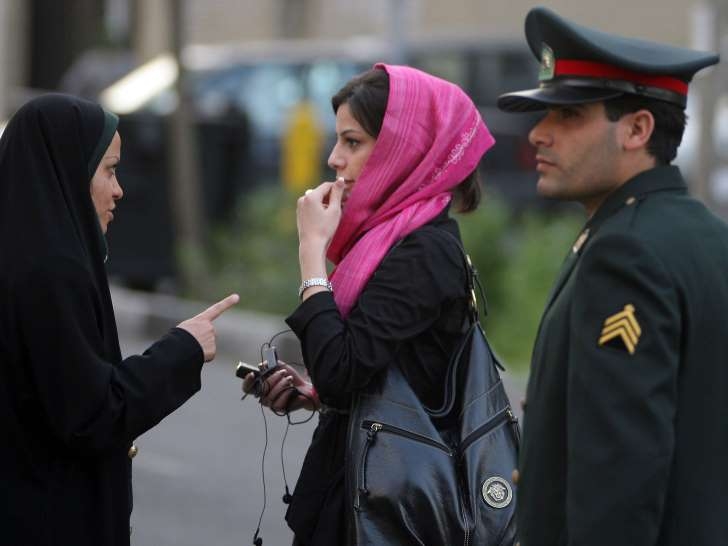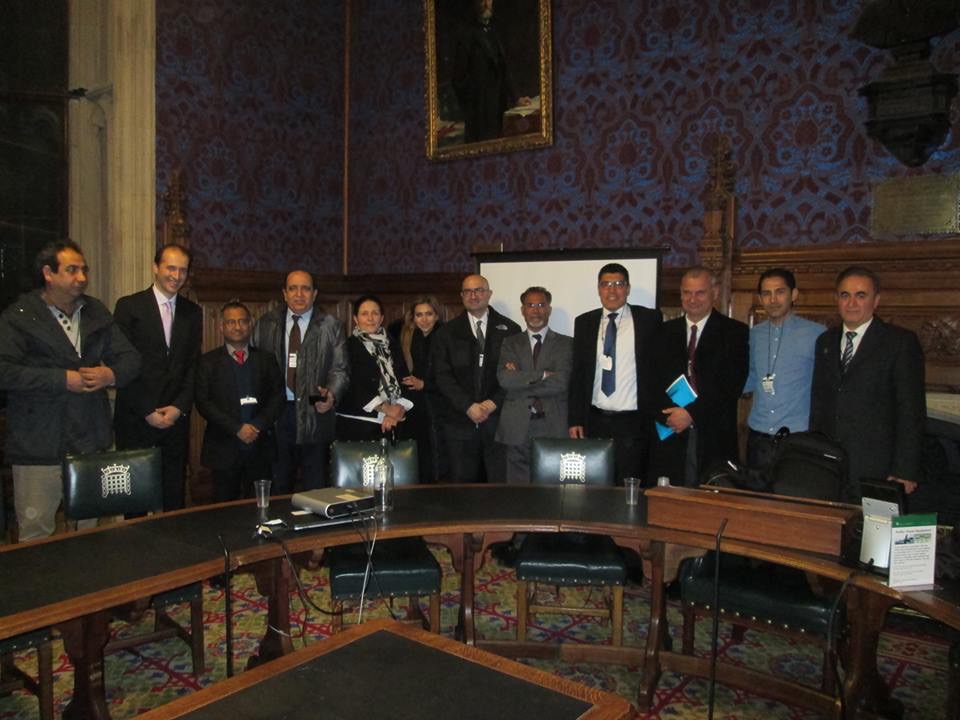ArabNews
People in the city of Ahvaz — the capital of Khuzestan, which is one of Iran’s wealthiest provinces when it comes to oil and natural gas — have been protesting for days over unbearable pollution and power failures. People can be heard chanting “unemployment, unemployment, unemployment... Iranian fellowmen assist us, assist us.”
Last year, Ahvaz was ranked the most polluted city in the world by the World Health Organization. It is ironic that Ahvaz residents are facing such difficulties while they are living in one of the most oil-rich cities of the Islamic republic.
In addition, although Ahvaz is rich in natural resources, the indigenous Arab residents of Khuzestan are plagued with severe socio-economic deprivation, suffer from one of the highest rates of poverty of the entire population of Iran, and have a high level of water and air pollution. The oil facilities surround and suffocate the city by releasing toxic materials and pollutants in the air.
Omar, an Ahwazi teacher, pointed out that “the Iranian government only needs our oil, they are pumping oil as fast as they can, and has turned the city into a dirty factory with no attention to lives of the children, men and women. We are not considered human beings.”
After sanctions were eased, Iran has increased its oil exports and oil deals with several countries. It also worth noting that nearly 90 percent of Iran’s total oil exports originates from Ahvaz.
But instead of addressing the concerns of the Ahvaz residents, Iranian police have called the protests illegal.
Persian media and politicians
Iran’s Persian newspaper Aftab quoted the head of the judiciary pointing out that “natural catastrophes should not be a basis for political unrest against the government.”
It is, however, a scientifically well-known fact that the problems in Ahvaz are not “natural.” Some underlying issues behind the pollution and poverty are excessive emissions of pollutants from oil facilities, economic mismanagement, the unwillingness of the Iranian politicians to spend money and resources in Ahvaz to upgrade its infrastructure and create jobs, the infinitesimal budget allocated to the large city of Ahvaz, the disregard for the air safety related to the oil refineries, along with the toxic runoff from the oil facilities and mines into the water.
But more importantly, the underlying reasons behind the Iranian government’s neglect of the Arab Ahwazi population are geopolitical, ethnic and sectarian.
Although the area has a wealth of natural resources, residents of Khuzestan are plagued with severe socio-economic deprivation.
Dr. Majid Rafizadeh
The overwhelming majority of people in Khuzestan province are Arab, concentrated mainly in Ahvaz. Although the ethnic Arab population of Iran has lived in Iran and Persia for thousands of years, even before the emergence of Islam, it appears that the Islamic republic has long viewed its Arab population as an outsider.
Many Ahwazis have been regularly arrested, imprisoned and executed for simply expressing their views. The arrests have included children, according to Amnesty International and Human Rights Watch. The Arab population of Ahvaz has also been subjected to property confiscation, rejection for state employment, arbitrary arrest, torture, detention, or limitations on movement.
As Hassiba Hadj Sahraoui, the deputy Middle East and North Africa director at Amnesty International, pointed out previously: “The reported scale of the arrests against Ahwazi Arab activists in recent weeks is deeply alarming... Instead of relying on arbitrary arrests, Iranian authorities should release those detained for peacefully demonstrating or speaking out and promptly charge any others with a recognizably criminal offense and ensure they receive a fair trial or release them.”
As a member of the International Covenant on Civil and Political Rights, Iran is obliged to allow peaceful assembly; according to Article 27, Iran is also obliged to make sure that the ethnic and linguistic rights of minorities are preserved, protecting “the right, in (a) community with the other members of their group, to enjoy their own culture... or to use their own language.”
Nevertheless, the Arab population of Khuzestan has experienced systemic social, economic and political deprivations for decades by being disproportionately excluded from socio-political and socio-economic development. In some areas of Ahvaz the unemployment rate reaches close to 50 percent. The Iranian government has also denied the Arab population of Khuzestan the right to use their native language in schools.
They have been subject to imposed “Persianization,” As Joe Stork, the deputy Middle East and North Africa director at Human Rights Watch, pointed out previously: “Instead of intensifying repression, the authorities should address longstanding Ahwazi Arab grievances over entrenched discrimination and denial of cultural rights.” He added that “arbitrary arrests and imprisonment will not make Ahwazi Arab grievances disappear.”
Finally, despite the promises made to the Arab population of Ahvaz in order to obtain their vote, President Rouhani has not taken concrete steps to address their grievances.
It appears that across Iran’s political spectrum, including the hard-liners and moderates, there is a consensus to disregard the grievances of the Ahvaz Arab population and to treat them as second class citizens or outsiders. Khuzestan and Ahvaz are being viewed from the prism of oil, wealth and money rather than from the human dimension.
• Dr. Majid Rafizadeh is a Harvard-educated Iranian-American political scientist. He is a leading expert on Iran and US foreign policy, a businessman and president of the International American Council. He serves on the boards of the Harvard International Review, the Harvard International Relations Council and the US-Middle East Chamber for Commerce and Business. He can be reached on Twitter @Dr_Rafizadeh.
Click here to read the aricle on AranNews
- Details
- Articles



















